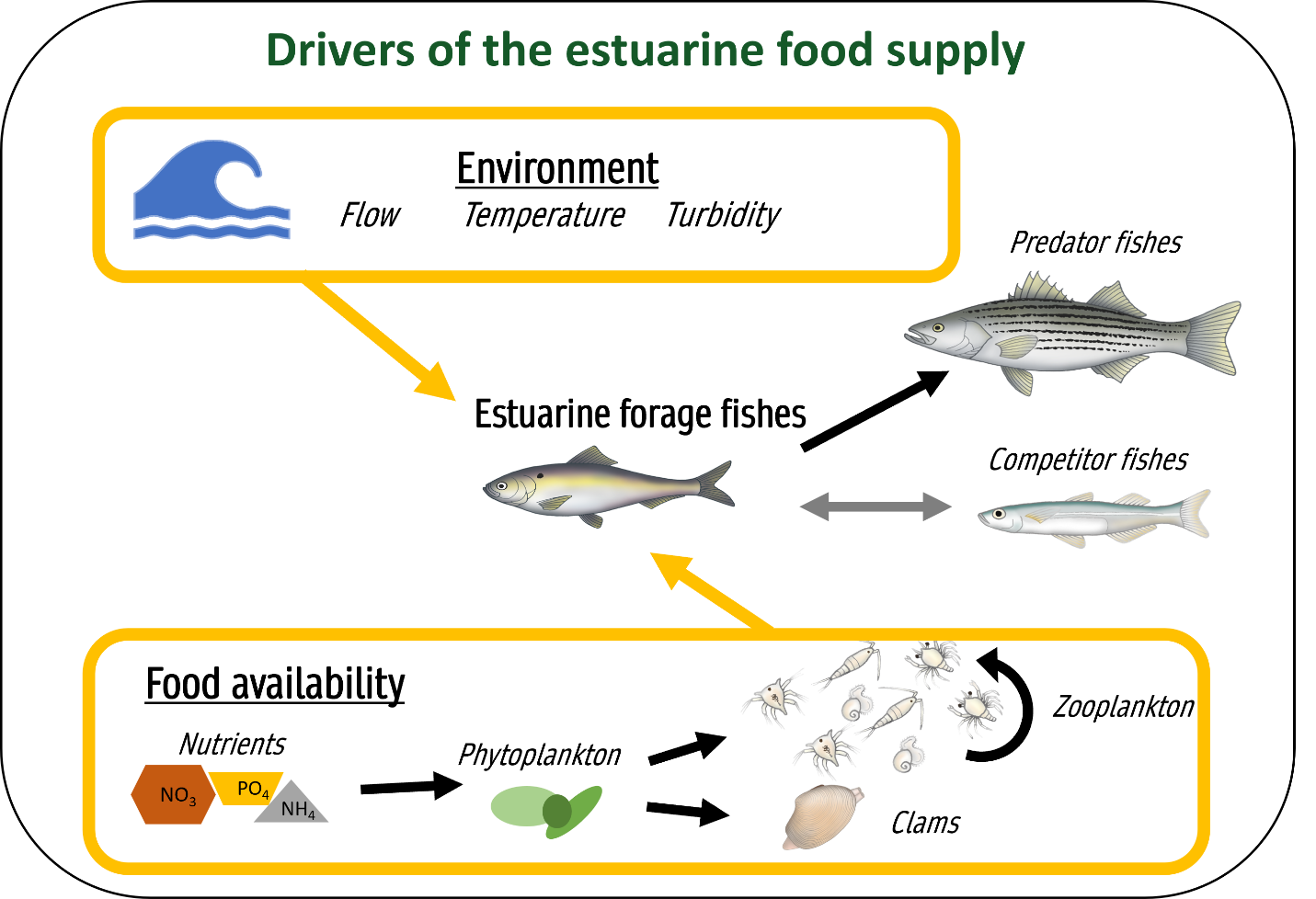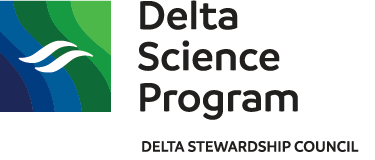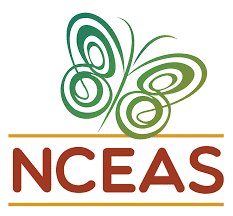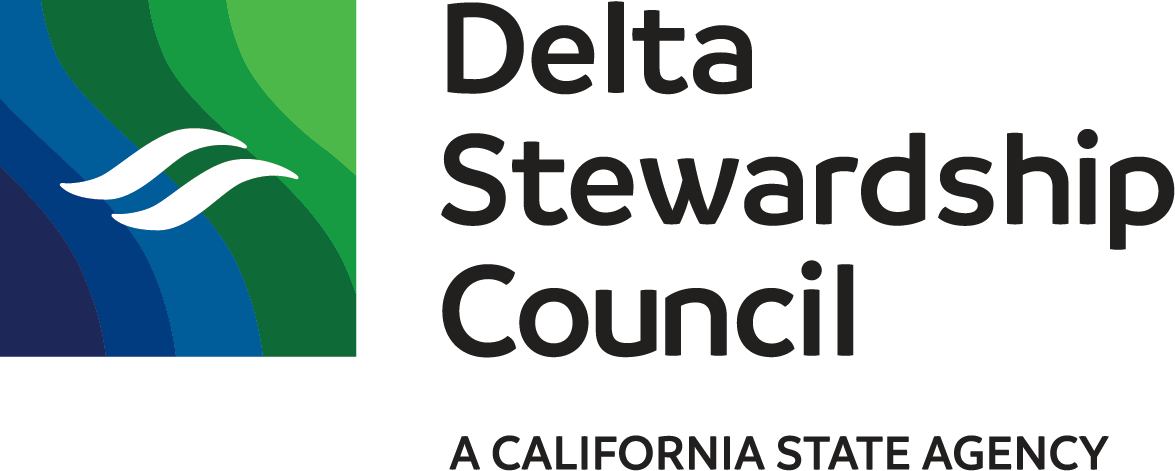The Delta Science Program’s Delta Synthesis Working Groups with the National Center for Ecological Analysis and Synthesis
Overview
The Delta Science Program partners with the National Center for Ecological Analysis and Synthesis (NCEAS) to lead collaborative synthesis working groups. The synthesis working groups receive high-quality training in synthetic data science and statistical techniques, and are provided a focused opportunity for enhanced collaboration among scientists from federal and State agencies as well as academic scientists.
Working group participants convene for three weeks of training and collaboration facilitated by experts from NCEAS. Following this working group event, participants analyze and synthesize data using their newly developed skills to address questions important to Bay-Delta management. Outputs from the effort include peer-reviewed publications, interactive data apps, reproducible workflows, R functions, and derived data.
Two working group cohorts have already completed training and produced data products and research papers. A third cohort will commence in early 2026.
Why a synthesis working group is important
Ecological synthesis is a critical component of ecosystem-based management and informed decision-making. NCEAS’s emphasis on open science principles and techniques promotes transparency and data sharing through reproducible data, software, and workflows. The need for increased capacity, dedicated time, and coordinated synthesis is recognized and included as an action in the Delta Science Plan, Science Action Agenda, and Interagency Ecological Program Science Strategy.
Upcoming 2026 Delta Synthesis Working Group
The Delta science community generates an abundance of data through diverse monitoring and research programs, yet much of this information remains decentralized and underutilized. In an era of rapid environmental and policy change, the Delta science community must transform decentralized data into open, usable products that support science-based decision making.
This year, the working group will focus on how open data principles, data standardization, and synthesis can leverage data to produce usable data products that inform management needs. Efforts from this working group will help lay the foundation to support interagency strategies that include a strong focus on monitoring data and using open data principles to advance the strategy outcomes.
Goals
This working group is focusing on assessing multi-benefit approaches to managing the Delta as a social-ecological system and investigating the integration of human dimension data into research and management decision-making. This may include the development of integrated frameworks, data visualization tools, and models of social-ecological systems. Two subgroups from this working group are evaluating the following research topics;
- How ecosystem restoration projects benefit and burden human communities, with an emphasis on environmental justice.
- The social, economic, and ecological costs and benefits of levee infrastructure within the Delta.
Progress
The training event began in June 2023, and during the summer months, participants focused on data publication. Training events continued in fall 2023, with an emphasis on interdisciplinary analysis techniques, including human subject research considerations within reproducible workflows, spatially explicit modeling using Census data, and text analysis. The products from this effort will build and integrate knowledge of the social processes and behaviors of Delta communities to support effective and equitable management of natural resources. This effort will address complex information needs with peer-reviewed articles, presentations, and briefings. Targeted management briefings are also possible and will be determined by the synthesis findings.
The products from this working group are under development.
An interactive planning tool for levee infrastructure has been developed and is expected to be published by the end of 2025. The tool provides a map-based visualization of the risk of levee failures and the social vulnerability data of communities in the leveed areas. A dataset used in this visualization tool was published on a data repository and is titled, “Map of modern (mid-2010s) habitat types in the Sacramento-San Joaquin Delta and Suisun Marsh intended for use in the Landscape Scenario Planning Tool.”
Additionally, a review of over 60 projects and their social impacts is ongoing. These products will offer strong scientific support in expanding multi-benefit approaches to managing the Delta as a social-ecological system (addressing Science Action Agenda, Management Need 3).
Participants
The working group consists of 16 participants from nine agencies and universities interested in bringing together environmental and social data to solve problems at the human-environment interface in the San Francisco Estuary. Affiliations of participants include:
- Bureau of Ocean Energy Management (BOEM)
- California Department of Fish and Wildlife (CDFW)
- California Department of Water Resources (DWR)
- California Office of Environmental Health Hazard Assessment (OEHHA)
- California State Water Resources Control Board (SWRCB)
- Delta Stewardship Council (DSC)
- San Francisco Estuary Partnership (SFEP)
- University of California Davis (UCD)
- University of California Merced (UCM)
Learn more
The following table provides the curricula for the synthesis working group, as well as interim data and code products, and will be updated as more products are available. To learn more, please visit the links in the table below.
Goals
This working group leveraged the fall 2021 training and the collaborative setting to analyze drivers of the estuarine aquatic food supply. Products from this working group offer strong scientific support to inform decision-making for restoration, protection of endangered species, and management of flow actions. The focus on food webs serves broad interagency goals, such as ecosystem function, resilience, and sustainability. Furthermore, comprehensive, spatially explicit Food web modeling tied to environmental driving forces and conditions is a recommendation in the Independent Science Board's review of "The Science of Non-native Species in a Dynamic Delta."
Progress
In the summer of 2021, the Delta Science Program worked with a data wrangling and publication expert from the NCEAS in the integration and publication of ‘estuarine food supply' relevant datasets from the Interagency Ecological Program and working group participants. The Delta Science Program saw this as an opportunity to make select datasets that previously had limited accessibility more available.
The three-week training event took place in September, October, and November 2021. Two distinct subgroups of this working group focused on the following research topics;
- The effect of flood management on estuary health.
- Identifying the drivers of food web dynamics on an estuary scale.
In March 2022, both subgroups presented preliminary results at the Delta Independent Science Board meeting (beginning at 2:05) and Interagency Ecological Program (IEP) Annual Workshop (beginning at 20:53). Additionally, Delta Science Program project leads presented results at the January 2023 Delta Stewardship Council meeting.
The working group has so far published several datasets, two R packages, and a peer-reviewed journal article on its research findings. A second peer-reviewed journal exploring the impacts of floodplain management on the estuarine food web is expected to be published in 2025.

Figure adapted from: Rogers et al. 2024. Evaluating top-down, bottom-up, and environmental drivers of pelagic food web dynamics along an estuarine gradient. Ecology. https://doi.org/10.1002/ecy.4274
Links to recent products:
- Evaluating top-down, bottom-up, and environmental drivers of pelagic food web dynamics along an estuarine gradient. Published in the peer-reviewed journal, Ecology, volume 105, issue 4, in 2024. Authors: Tanya Rogers, Samuel Bashevkin, Christina Burdi, Denise Colombano, Peter Dudley, Brian Mahardja, Lara Mitchell, Sarah Perry, and Parsa Saffarinia.
- Two new R packages, deltafish and inundation,
- Environmental Monitoring Program’s benthic invertebrate monitoring data publication (Wells and IEP 2021),
- Sacramento-San Joaquin Delta genus and community level classification maps (Shruti Khanna, Susan Ustin, Erin Hestir, et al. 2022),
- Fish abundance in the San Francisco Estuary (1959-2021), an integration of 9 monitoring surveys (Bashevkin et al., 2022),
- Daily water temperature (C) in the Yolo Bypass and Sacramento River, 1998-2019 (Goertler and Pien, 2022),
- Modeled daily Yolo Bypass inundation (Goertler, 2022)
- Data from "evaluating top-down, bottom-up, and environmental drivers of pelagic food web dynamics along an estuarine gradient" (Mitchell et al., 2023),
- Data from “floodplain inundation and lateral connectivity promote productivity in the river ecosystem” (Pien et al., 2023 )and
- Zooplankton energy densities from literature (Dudley et al., 2022).
Participants
The working group consisted of 18 participants from nine agencies and universities interested in synthesis projects involving primary productivity, contaminants, connectivity, climate change, growth, floodplains, zooplankton, food web linkages, forecasting, hydrodynamics, and more. Affiliations of participants include:
- California Department of Fish and Wildlife (CDFW)
- California Department of Water Resources (DWR)
- Delta Stewardship Council, Delta Science Program (DSP)
- National Oceanic and Atmospheric Administration (NOAA)
- University of California Berkeley (UCB)
- University of California Davis (UCD)
- University of California Santa Cruz (UCSC)
- U.S. Bureau of Reclamation (USBR)
- U.S. Fish and Wildlife Service (USFWS)
- U.S. Geological Survey (USGS)
Learn more
The following table provides the curricula for the synthesis working group, as well as interim data and code products, and will be updated as more products are available. To learn more, please visit the links in the table below.



